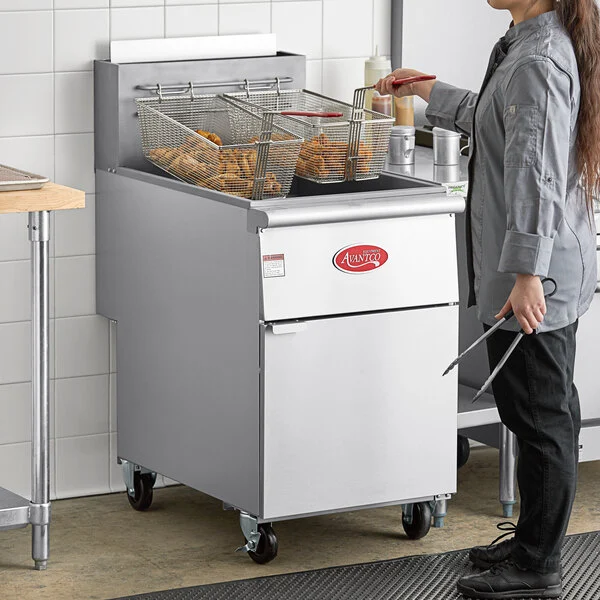At Mopac, we understand the importance of using cooking oil efficiently and effectively, especially in the food industry. Proper management of cooking oil not only ensures delicious and consistent results but also contributes to sustainability efforts. Here’s a comprehensive guide on the basics of cooking oil for frying, including best practices to maximize its use.
Choosing the Right Oil – The type of oil you choose can significantly impact the taste and texture of your fried foods. Here are some popular options:
- Canola Oil: Known for its neutral flavor and high smoke point, canola oil is a versatile choice for deep frying.
- Peanut Oil: With a high smoke point and subtle nutty flavor, peanut oil is excellent for achieving crispy textures.
- Sunflower Oil: This oil offers a mild taste and is ideal for high-temperature frying.
- Vegetable Oil: A blend of oils, often including soybean and sunflower, vegetable oil is a cost-effective and widely used option.
Managing Oil Temperature – Maintaining the correct oil temperature is crucial for frying perfection. The ideal frying temperature ranges between 350°F and 375°F (175°C – 190°C). Here are some tips:
- Use a Thermometer: Always use a deep-fry thermometer to monitor the oil temperature.
- Avoid Overcrowding: Fry in small batches to prevent the temperature from dropping too quickly.
- Adjust Heat as Needed: Keep an eye on the thermometer and adjust the stove’s heat to maintain a steady temperature.
Best Practices for Oil Usage – To get the best out of your frying oil, follow these essential practices:
- Strain the Oil: After each use, strain the oil to remove food particles. This helps extend its life and maintain the quality of the fried food.
- Proper Storage: Store used oil in a cool, dark place in a clean, airtight container to prevent it from becoming rancid.
- Monitor Oil Quality: Regularly check for signs of degradation, such as darkening color, off-smells, or excessive foaming. Replace the oil when necessary.
Environmental Responsibility – Proper disposal and recycling of used cooking oil are crucial for environmental sustainability. Mopac specializes in collecting and recycling used cooking oil, turning waste into valuable resources. Here’s how you can contribute:
- Schedule Regular Pickups: Ensure your used oil is collected regularly by Mopac to prevent build-up and potential contamination.
- Follow Disposal Guidelines: Never pour used oil down the drain. Instead, use designated containers for collection.
- Educate Staff: Train your kitchen staff on the importance of proper oil disposal and recycling practices.
Benefits of Recycling with Mopac – Partnering with Mopac for your used cooking oil disposal not only helps the environment but also offers several benefits:
- Reliable Service: Enjoy a “set it and forget it” partnership with our reliable and routine collection services.
- Transparency with Rebates: We offer transparent rebates, ensuring you get fair compensation for your used oil.
- Heritage and Expertise: With a history dating back to 1906, Mopac brings expertise and reliability to the table.
Conclusion
Mastering the basics of cooking oil for frying not only enhances your culinary creations but also promotes sustainability. By following these best practices and partnering with Mopac for your used oil recycling, you can ensure delicious results and contribute to a greener future.
For more information on our services and to schedule a collection, visit our website or contact us today.




